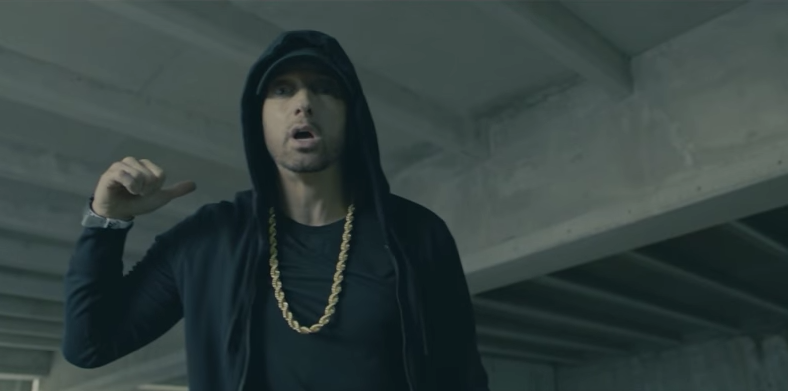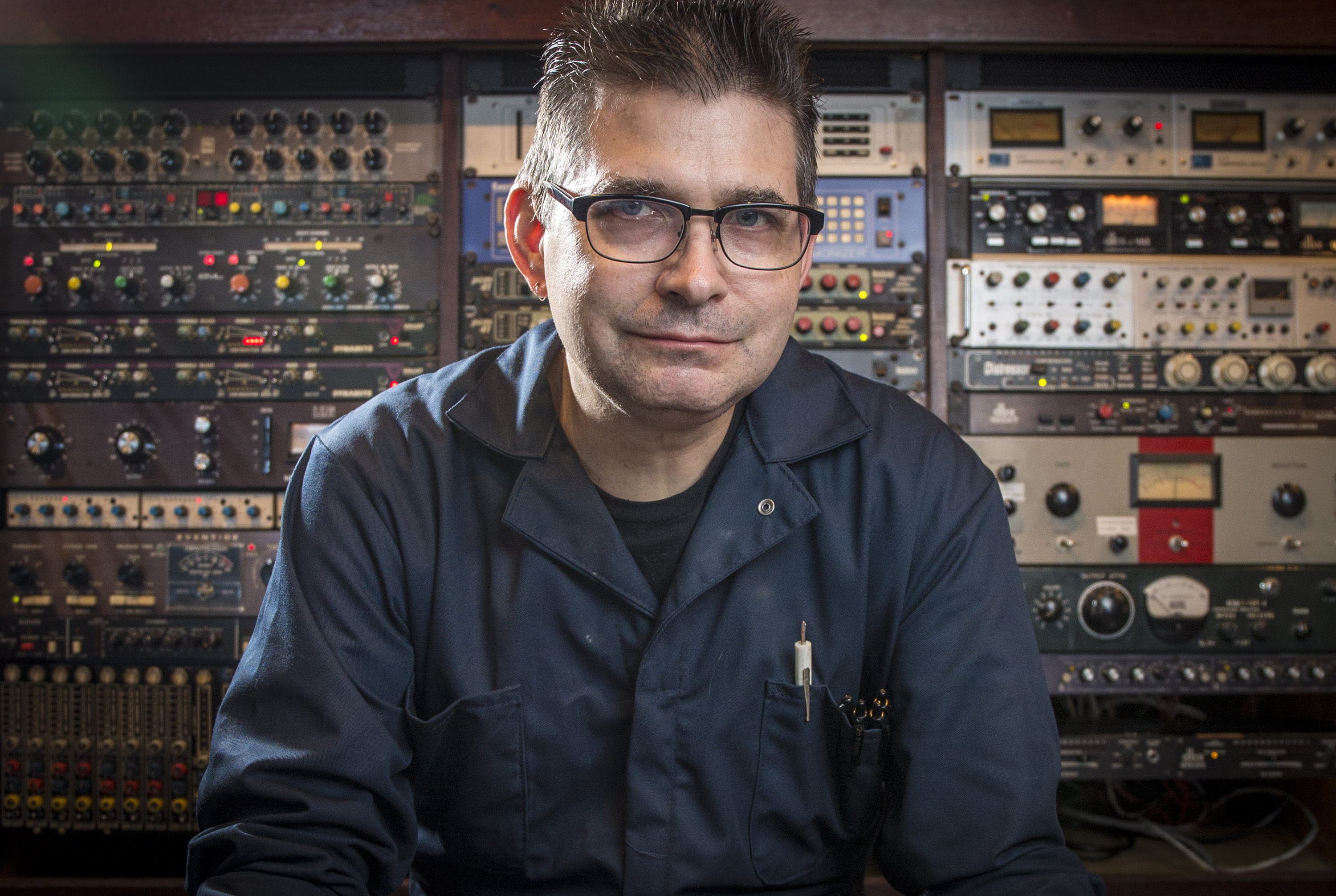There was supposedly once a moment when someone like Walter Cronkite could denounce something like the Vietnam War and spark instant consciousness amongst the majority of Americans, forcing the powers that be to realize that something different was happening, and that they’d better adjust. Never mind whether such moments actually happened: The belief gives us a tidy way to consider America as a place where one man, using the right words, can change our minds. Men like Cronkite did this work more than fifty years ago, and every serious person recognizes that what was the monoculture is now infinitely fractured, if it ever really existed. But if one man stood on the shining hill and managed to lead us to the promised land, what would it actually look like?
Last night, Eminem delivered an incendiary freestyle at the BET Awards, in which he excoriated president Donald Trump, evinced support for beleaguered NFL quarterback Colin Kaepernick, told his Trump-supporting fans to figure out where they stood or fuck off, and rhymed “Packers” with “taxes,” all while styled like Mariah Carey’s version of him. The rap was roundly praised. BET’s original tweet of the video was retweeted more than 200,000 times; prominent anti-Trumpers like LeBron James, Ellen Degeneres, and Kaepernick pledged their support. Keith Olbermann, amazingly, claimed that it made him a fan, despite the fact that Eminem’s delivery—nearly spoken word, with long pauses between the lines and no beat underneath—bore slim resemblance to anything typically enjoyed by people as rap music.
There was another way to view Eminem’s rap, which was that it was very bad, and more importantly, unnecessary. Black artists like Kendrick Lamar and YG have been beating the anti-Trump drum for some time without getting nearly the acclaim; white artists like Mac Miller and, yes, Macklemore have spoken out against Trump. Plus, come on: The rap begins “That’s an awfully hot coffee pot / Should I drop it on Donald Trump? Probably not.” If good rap is rated as such on a rubric of originality, flow, subject, and emotion, Eminem won points only for passion and factual accuracy. Yes, Donald Trump is bad, but it’s hardly novel to say so in October 2017, months into what’s been a disastrous president and years into what has been Trump’s slow evolution from reality television show host to race-baiting Fox News cipher.
Still, Eminem is not a typical musician. He’s arguably the most popular rapper ever—if you don’t count inflated double LP totals, he’s released the two highest-selling rap albums in the genre’s history. He’s inarguably the most popular white rapper ever, which gives him a specific appeal to white listeners who appreciate the genre’s aesthetics but hate thinking about its politics. A New York Times analysis of musical fanbases revealed that Eminem’s “fan base is strongest in whiter and more rural places: West Virginia; southern Ohio; eastern Kentucky; deep north Maine; the Ozarks in Missouri; across the Great Plains.” Almost all those states voted for Trump.

Also Read
WHEN EMINEM RULED THE WORLD
Eminem has previously voiced his political opinions; in 2004, he released “Mosh,” an anti-Bush song that nonetheless did not stop George W.’s re-election. But that was then, and this is October 2017, where even Trump’s base is finally beginning to realize that the man they voted for is a legendary dumbass, whose ego and frailties will quite possibly bring the country to ruin. Couldn’t Eminem, now, be the man to do it—invoking the spirit of Walter Cronkite to cut through the storm of information and tilt out moral weather vanes just enough that we rejected the bad thing?
Hillary Clinton’s campaign made avid use of of liberal celebrity, with massively famous stars such as Katy Perry, LeBron James, and Bruce Springsteen all advocating on her behalf. It didn’t make a difference: Trump still eked out a victory, and those celebrities were disparaged as elitist by disingenuous conservative partisans. Nonetheless, there remains a theoretical argument that one of these public figures is going to be enough to turn the tide, like the moment in an action movie where the heroes get a bigger gun. If not Katy Perry, then maybe Eminem; if not Eminem, then maybe Taylor Swift.
The logic is understandable, though increasingly desperate. If the slow, arduous work of pointing our country in the right direction—such as reversing illegal gerrymandering, or guaranteeing the right to vote—remains slow and arduous, it’s much easier to imagine a celebrity as a magic bullet, or at the very least, part of the wave that will push Trump back. All this exists in a purely theoretical space, of course; absent the hard evidence that Eminem is changing people’s minds, the most anyone can say is “hey, maybe.”
Even so, Eminem’s participation feels meaningfully different than Macklemore, or Mac Miller, or even Kendrick Lamar, none of whom have the same cross-demographic appeal. I can’t deny that, but I can still say it sucks that it seems meaningful. To elevate Eminem here risks falling back into the same, failed pre-election wisdom that bestows undue importance on publicity stunts delivered during award shows, more bluster in a particularly blustery era. As Justin Charity wrote for the Ringer, regarding Swift’s supposed responsibility: “Perhaps the better question, then, is: Do you really want to live in a country that breathlessly encourages Taylor Swift to become yet another pundit, and perhaps an easy clickbait candidate for office some day?” Kid Rock is already thinking about running for Senate.
Despite all this, I’m still sympathetic to the freestyle’s intention. This theoretical citizen who needs Eminem to be told Trump is bad—well, he’s problematic in many ways, but he’s still someone who can be put on the more righteous path, rather than one of those inchoate, howling “build the wall” doofuses for whom no argument is good enough. Forget about utopia; think about the numbers game. If Eminem is able to do some good, why shouldn’t he rap all the hackneyed punch lines and wear all the bad beards he wants. It doesn’t make for good music, and it certainly doesn’t make for a good process, but such is my basic liberal craving for something—anything!—that might make a difference.




